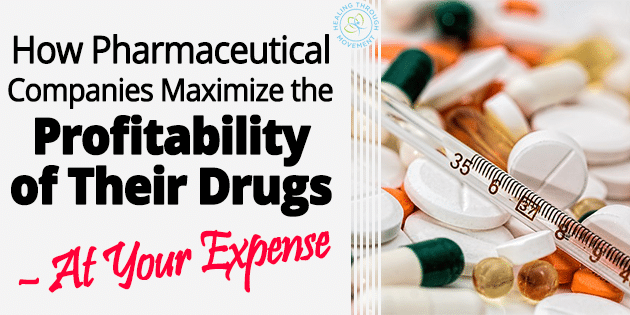Pharmaceutical companies make their profits from the treatment of illnesses. Therefore, it should come as no surprise that they would find it beneficial if more people were sick so that they can continue to profit. Fortunately for them, the dependence of the general population on medication, especially for chronic illness, means that they will continue to perform well in a corporate sense.
Chronic diseases are actually diseases resulting from people’s general behavior and lifestyle. As such, behavioral and lifestyle modifications should always be part of their treatment. Instead, doctors usually just prescribe medication for the symptom consulted and neglect to educate about lifestyle and behavior. The patient then becomes dependent on medication, resulting in the disease getting worse over time. This will then lead to more medications being prescribed, perpetuating the dependency on prescription drugs. This is a great scenario for pharmaceutical companies.
Dr. Kevin Cuccaro, an anesthesiologist and pain specialist gave his impression of how pharmaceutical companies market and maximize the profitability of their patented drugs. It should be noted that the top 5 drugs of 2014 were all drugs used for chronic illnesses. The top drug of 2014 and 2013 was Abilify, a patented psychiatric drug originally used for schizophrenia. Because of the relatively limited number of diagnosed schizophrenics, the drug manufacturer sought to expand Abilify’s usage. They promoted its use for other conditions like bipolar disorder, clinical depression, irritability caused by autism and Tourette’s Syndrome, leading to an increase in the drug’s prescription. This isn’t just a recent phenomenon. In the past, anti-cholesterol medications were heavily promoted because hypercholesterolemia and cholesterol in general was seen as bad. It turned out that the evidence for these medications widespread use was poor, and the guidelines have been, and continue to be, revised.
When drugs move off a patent, the drug companies have to focus on new drugs that are still patented, preferably for chronic diseases. They then try to expand the use of a patented drug beyond its original indication to other illnesses. The thing is, they can actually make this happen in a medically acceptable way. According to Dr. Cuccaro, here’s how:
1. A patented drug is approved for a specific indication and makes a profit for the drug company. Towards the end of its patent period, the company will then try to find other conditions it can be useful for. Ideally, these conditions are common but have only a few drugs approved for its treatment.
2. The company tries to find a patient advocate group to promote awareness of the disease. They may actually form their own non-profit organization for the same objective.
3. The company seeks out physician partners. These are academic physicians or researchers for the disease. The company encourages the expansion of diagnosis and even provides educational material for the physicians. Once convinced, they start treating, while the pharmaceutical companies continue to stress the importance of disease awareness and treatment with their product within the medical community. They promote how their drug is superior to other drugs or even to lifestyle changes (that in fact address the underlying cause of the illness).
4. The company also promotes awareness of the disease to the general public, encouraging them to seek consult if they are feeling symptoms that may suggest they are suffering from the disease. At the same time, they also advertise their product to further convince people.
Dr. Cuccaro also illustrated these methods by citing how some recently-recognized conditions were promoted for general awareness and needing pharmaceutical treatment. Binge Eating Disorder (BED) is a new condition that has been included in the psychiatric manual DSM V. It is an eating disorder that doesn’t qualify as anorexia or bulimia, which are both serious conditions. BED is basically a condition where someone periodically eats too much to the point that it bothers them. Then, a drug company (with a dubious marketing history) which produces a drug for ADHD (another disease they promoted heavily back in the ‘90s) promotes the use of the same drug for BED. Non-clinical depression is another new disease entity that is promoted as being treatable with medication, even if lifestyle modification can be more effective. Social anxiety disorder is actually just a new phrase for shyness. Again, instead of investigating the cause of shyness (introverted personality, traumatic past events, etc.), now it can be treated with medication too.
There are many serious diseases that need medication for effective management, but not as many suffer from them as it may seem. The truth is that many chronic diseases are better managed with lifestyle and behavioral modification. Medications should only be adjunctive and people should not have to rely on them too much.
If you want to know what foods will help you shape up and shed inches while providing natural cure to illnesses, then check out the Best Foods That Rapidly Slim & Heal In 7 Days program.


